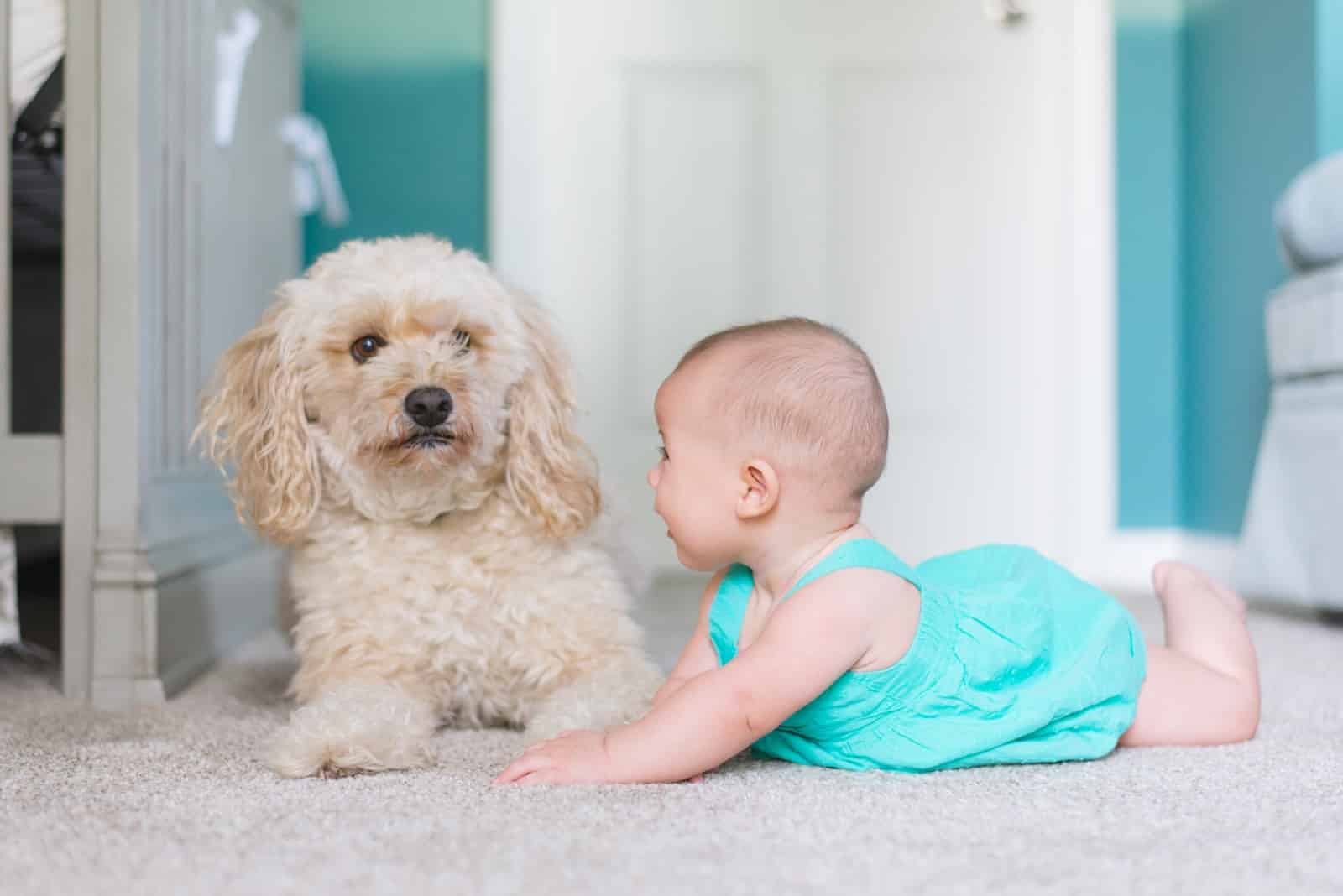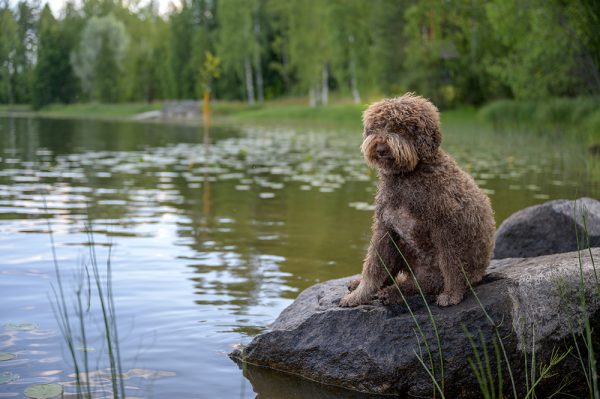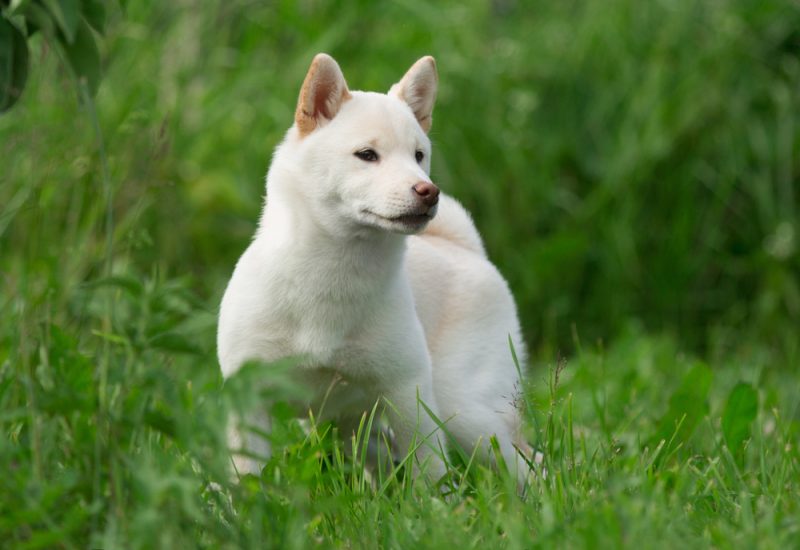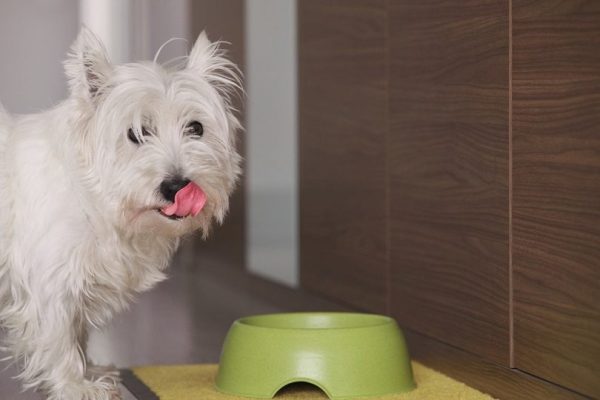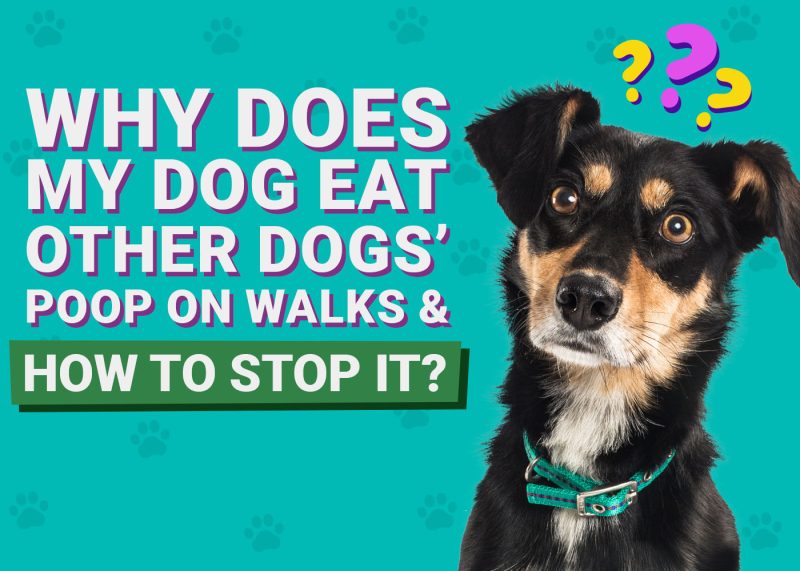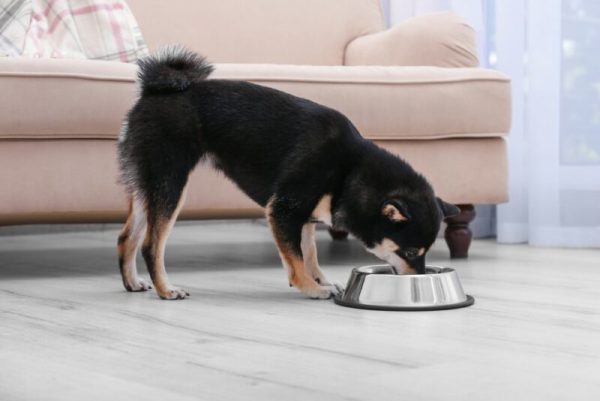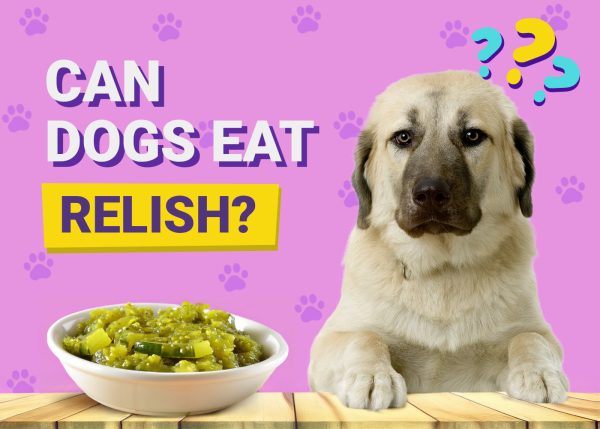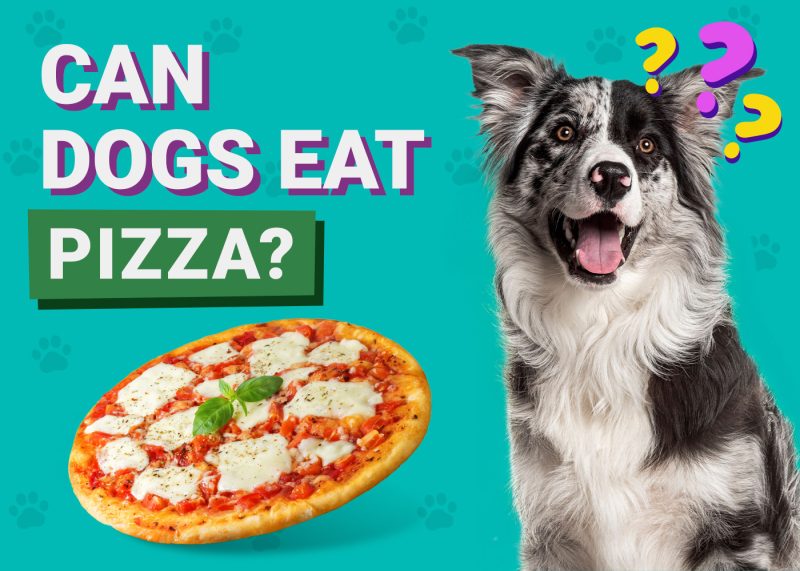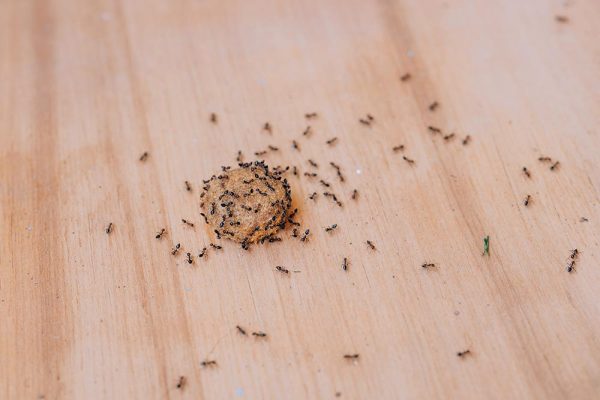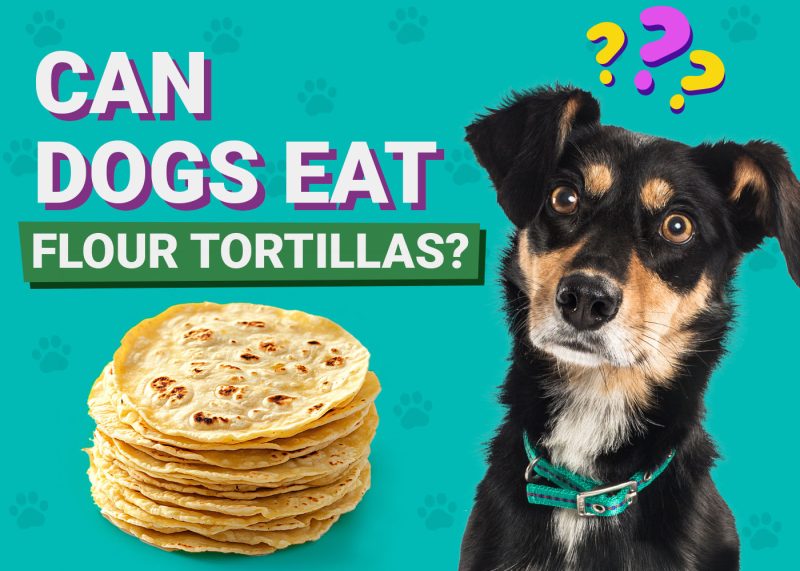In this article
View 2 More +The canine may be man’s best friend, but does that apply to babies too? If you have a dog (or dogs) in your home and will be welcoming a new baby soon, you may be wondering how your pup will view your little one. Can dogs be around newborns? Will they be jealous of the attention that the new baby receives, or will they be protective of them like any other family member? Are dogs protective of babies?
Dogs can indeed be protective of babies, but since all dogs are individuals, not every dog will be. Still, many dogs are, and some breeds are more protective than others. Here’s what you should know if you’ll soon have a baby and a dog living together.

Do Dogs Like Babies?
While we can’t know for sure whether dogs like babies, they do seem to take a special interest in and become quickly smitten with our little ones. Studies have been done on how our canine companions perceive us, but those studies only apply to adult humans, not babies, so the research is out on how dogs see them.1
What we do know, though, is that a good majority of pups quickly become intrigued by the new tiny human in the home. This is particularly true if your dog is still a puppy because puppies are usually more inquisitive and playful than adult dogs.

Are Dogs Protective of Babies?
Many dogs are indeed protective of babies (though not all dogs will be). But why do they become so protective of our little ones?
Perhaps the biggest reason is that canines are social, pack-driven creatures. Pups that are closely bonded with their human family view them as pack members, so it only makes sense that a new, albeit tiny, human would automatically become a pack member too. Dogs seem to recognize that this addition is a part of the family, which triggers their protective instincts.
Another reason our pups may become protective of little ones is that they see how protective we are of our babies. Dogs are big on mimicking our behaviors, so when they see you taking care of your baby and being gentle around them, they realize they should behave in a similar manner. Our pups pick up on our body language and verbal cues quite quickly, so it won’t take them long to realize the tiny human needs protecting.
Canines can also pick up on emotions and feelings, so it is thought that they can sense that a baby is more vulnerable than an adult human and might associate the baby with a young pup. This is why you might find your dog doing something like trying to lick your baby’s rear or sniffing at their face. They’re trying to check on your little one to ensure that they are healthy or trying to clean them, much like they would do with a puppy.
Some breeds are simply more inclined to be gentle and protective of little ones. Take the Newfoundland, which is known as a “nanny dog” breed due to their natural instinct to be gentle yet protective around little ones. This dog will manage to stay calm even when children are noisy and chaotic.
So, our canine companions tend to be protective of babies for several reasons.
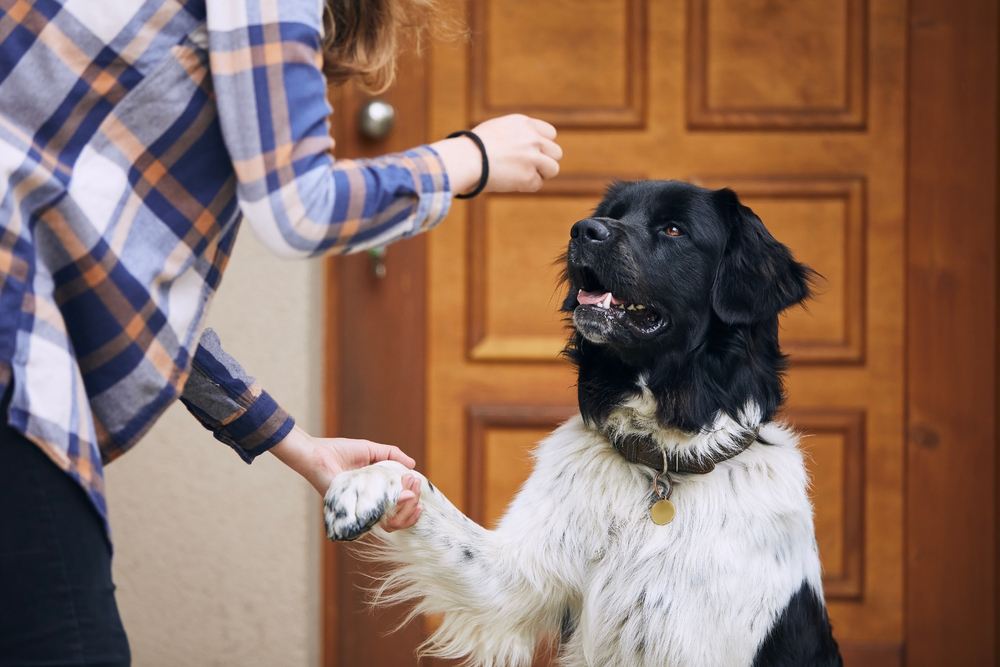
Precautions for New Parents
Unfortunately, as protective as our canine friends can be toward babies, accidents can occur. Most dogs are much larger than babies, which can lead to incidents like a dog stepping on a little one. Dogs can be easily startled at times too, and if a baby startles them, they could react with a bite. If you’re a dog owner who is also (or about to be) a new parent, there are precautions that you should take to keep your baby and pup safe.
- Get your dog used to the new items in the home before the little one arrives. Let your pup sniff and explore all the new baby stuff that you acquire. A big one is the stroller, which some canines are immensely scared of at first. Play baby noises, and help teach your dog to walk next to the stroller before the baby arrives.
- Be sure to begin proper training and socialization with your dog as soon as you get them. This way, your dog should be well-behaved by the time you have a baby. If you have concerns about your pup being around your little one, though, there are trainers who are experienced at working with dogs to get them used to babies.
- Never leave a dog and baby alone, no matter how well-behaved your pup is.
- Introduce your dog to the new baby slowly.
- Sometimes, dogs become aggressive around babies but not toward them. They become so protective that they’ll get between a baby and anyone or anything else, including the baby’s parents. In this situation, you’ll likely need the help of a vet or trainer to break the behavior.
If you need to speak with a vet but can't get to one, head over to PangoVet. It's our online service where you can talk to a vet online and get the advice you need for your pet — all at an affordable price!

Final Thoughts
Our canine pals can absolutely be protective of babies. Not all dogs will be protective, but a good majority will be. As to why they become protective of little ones, it’s probably a combination of acknowledging the baby as part of the pack unit, realizing the tiny human is vulnerable like a puppy, and seeing and mimicking how we interact with the baby. Just remember that no matter how good a pup you have, you should still take precautions when dogs and babies are together, as accidents can happen.
Featured Image Credit: Picsea, Unsplash
